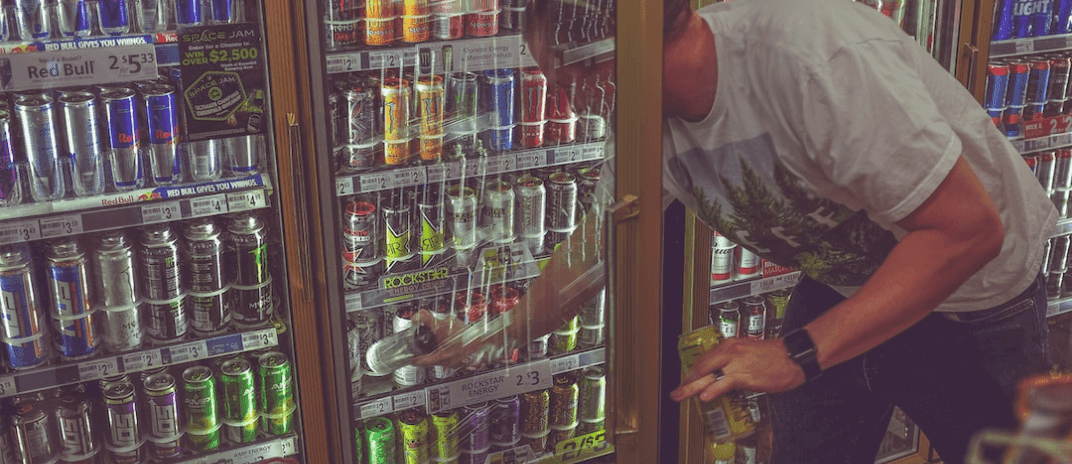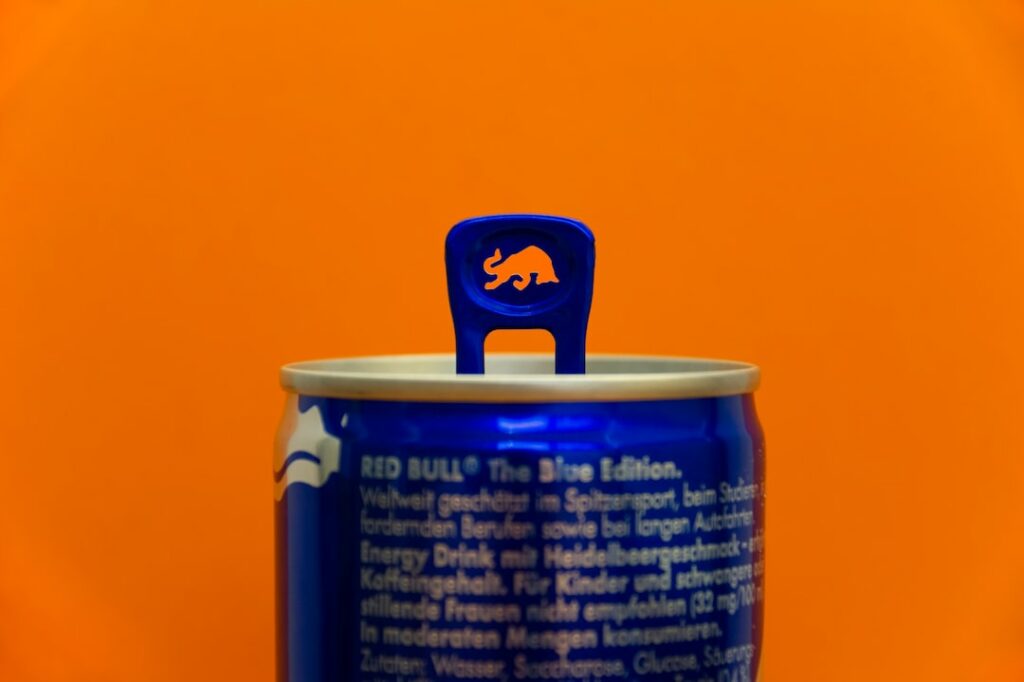


Do you ever wonder why energy drinks leave you feeling exhausted? It may seem strange since they’re supposed to give you a boost. But there are actually surprising reasons why they can make you tired.
In this article, we’ll explore how the high caffeine and sugar intake in energy drinks can backfire, leading to crashes and irregular sleep cycles.
We’ll also provide tips on avoiding energy drink crashes and suggest natural alternatives to keep your energy levels up.
When the effects of caffeine wear off, you may start to feel tired after consuming energy drinks. It’s important to understand that energy drinks provide a temporary boost of energy due to their high caffeine content and sugar content. However, once the caffeine fades, you may experience a crash, leading to feelings of sleepiness and fatigue.
The added sugar in energy drinks can also contribute to this tiredness, as it provides a quick burst of energy followed by a crash in blood sugar levels.

After consuming energy drinks, you may develop a tolerance to caffeine, which can lead to feelings of tiredness and fatigue. Caffeine tolerance occurs when your body becomes accustomed to the regular intake of caffeine, resulting in a diminished response to its stimulant effects.
This can be problematic because caffeine is often used to combat fatigue and promote alertness. However, when you develop a tolerance, the same amount of caffeine that used to give you a boost of energy may no longer have the same effect. As a result, you may feel tired and fatigued even after consuming energy drinks.
This can disrupt your sleep cycle and contribute to a cycle of dependence on caffeine to combat tiredness. To avoid caffeine tolerance and its associated fatigue, it’s important to moderate your energy drink consumption and consider alternative ways to boost your energy levels, such as getting enough sleep, maintaining a balanced diet, and staying hydrated.

To avoid experiencing fatigue and other unpleasant symptoms, it is important for you to be aware of the potential caffeine withdrawal symptoms that can occur after consuming energy drinks. These symptoms can make you feel tired, sleepy, and disrupt your sleep. Here are some common caffeine withdrawal symptoms that you may experience:
| Caffeine Withdrawal Symptoms | Description |
|---|---|
| Fatigue | Feeling extremely tired and lacking energy |
| Headache | Experiencing a throbbing or dull pain in the head |
| Irritability | Feeling easily annoyed or agitated |
| Poor concentration | Difficulty focusing or paying attention |
| Mood changes | Feeling depressed, anxious, or irritable |
These symptoms can occur when you regularly consume high amounts of caffeine and suddenly reduce or stop your intake. It is important to gradually reduce your caffeine consumption to minimize these withdrawal symptoms.
One common reason why energy drinks can make you tired is due to the occurrence of a sugar crash. When you consume energy drinks that are high in caffeine and sugar, you may experience a quick burst of energy. However, this energy is short-lived, and once the sugar is metabolized, your blood sugar levels can plummet, leading to a sugar crash.
This can leave you feeling tired and fatigued. The combination of caffeine and sugar in energy drinks may initially give you a temporary boost, but the crash that follows can make you feel even more tired.
It’s important to be aware of the effects of sugar crashes and consider healthier alternatives for sustained energy throughout the day.
You may also like:
Why Does Alcohol Make Me Sleepy?
Top 10 Foods That Naturally Make You Sleepy
When consuming energy drinks that are high in caffeine and sugar, you may experience sleep loss, leading to feelings of tiredness and fatigue. Energy drinks can disrupt your sleep patterns, making it difficult for you to get a restful night’s sleep. Lack of sleep can contribute to feeling tired and can have negative effects on your overall well-being.
Drinking an energy drinks close to bedtime can make it harder for you to fall asleep and stay asleep throughout the night. The combination of high caffeine levels and sugar can interfere with your body’s natural sleep-wake cycle, making you feel groggy and sleepy the next day.
To prevent sleep disruption, consider switching to sugar-free energy drinks or finding alternative sources of caffeine. It’s important to prioritize your sleep and find natural energy boosts, like exercise or napping, to replace the reliance on energy drinks that make you tired.
You may also like:
Sleep Calculator: Find The Best Time To Sleep

Regular consumption of caffeine can increase your sensitivity to adenosine, a compound that builds up in your body and makes you feel drowsy. This means that the more caffeine you consume, the more adenosine receptors your body produces, leading to a decreased response to caffeine and an increased feeling of tiredness.
Adenosine is a natural compound that plays a role in regulating sleep and wakefulness. When adenosine binds to its receptors in the brain, it promotes feelings of sleepiness and relaxation. Caffeine blocks these receptors, temporarily preventing adenosine from binding and keeping you awake and alert.
However, with regular caffeine consumption, your body becomes more sensitive to adenosine, making you more prone to feeling tired. It’s important to be mindful of your caffeine intake and give your body breaks from caffeine to avoid developing a tolerance.
In conclusion, energy drinks may initially provide a burst of energy, but their high caffeine content and sugar levels can lead to crashes and disrupt sleep patterns. Caffeine wearing off, tolerance, and withdrawal symptoms can leave you feeling tired.
Additionally, the consumption of high sugar quantities in energy drinks can also contribute to fatigue and feeling tired in the morning. It’s important to be aware of these effects and consider natural alternatives to boost your energy levels without relying on energy drinks.
Ammon HP. Biochemical mechanism of caffeine tolerance. Arch Pharm (Weinheim). 1991 May;324(5):261-7. doi: 10.1002/ardp.19913240502. PMID: 1888264.
In exploring the effects of energy drinks, Sanford Health discusses the phenomenon of sugar crashes and their impact on energy levels" (Sanford Health, 2022). Available from: https://news.sanfordhealth.org/healthy-living/sugar-crash-effects/
Sajadi-Ernazarova KR, Anderson J, Dhakal A, et al. Caffeine Withdrawal. [Updated 2023 Aug 8]. In: StatPearls [Internet]. Treasure Island (FL): StatPearls Publishing; 2024 Jan-. Available from: https://www.ncbi.nlm.nih.gov/books/NBK430790/
Singh S, McKintosh R. Adenosine. [Updated 2023 Aug 28]. In: StatPearls [Internet]. Treasure Island (FL): StatPearls Publishing; 2024 Jan-. Available from: https://www.ncbi.nlm.nih.gov/books/NBK519049/